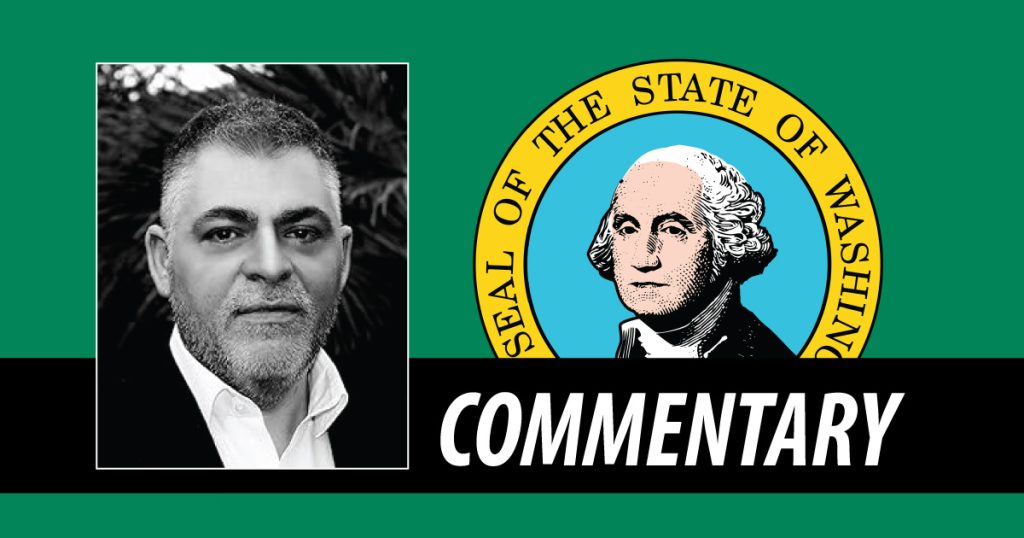For decades, Washington State’s Republican Party has suffered from a persistent falsehood: the belief that only a moderate Republican from King County can win a statewide election. This narrative has dictated candidate selection, fueled internal divisions, and contributed to repeated electoral failures. Meanwhile, conservatives and moderates remain locked in an unproductive battle over ideology, squandering resources and alienating voters. It’s time to dispel this myth and focus on what truly matters: uniting behind the Republican nominee, fully funding campaigns, and winning elections. Nothing else matters if you don’t win.

The record is clear. Since 2008, Washington Republicans have nominated moderate gubernatorial candidates like Dino Rossi, Rob McKenna, Bill Bryant, and Dave Reichert. In 2020, conservatives broke from this trend by nominating Loren Culp. All of these candidates lost. Rossi received 46.76% of the vote in 2008, McKenna garnered 48.3% in 2012, Bryant achieved 45.49% in 2016, Culp earned 43.12% in 2020, and Reichert finished with 44.28% in 2024. While moderates slightly outperformed Culp in terms of percentage points, their campaigns came at a far greater cost. Rossi spent $17.27 per vote, McKenna spent $16.26 per vote, and Reichert spent $3.97 per vote. By contrast, Culp spent just $1.91 per vote and received more total votes than any other Republican gubernatorial candidate in this analysis. The takeaway is clear: neither moderate nor conservative candidates can win statewide under current conditions, and spending more money doesn’t guarantee better results. What matters is unity and strategy.
The myth of moderate electability has led to misplaced priorities and diminished trust within the Republican Party. It pits conservatives and moderates against each other in a destructive tug-of-war that benefits only Democrats. Every dollar spent on internal power struggles is a dollar not spent building the infrastructure needed to compete statewide. Every moment wasted on ideological squabbles is a moment lost to Democrats consolidating power and resources. This division depresses voter turnout, discourages donors, and alienates potential volunteers—all of which make the Republican Party less competitive when it counts.
To reverse this trend, Republicans must realign their priorities. The time to hold candidates accountable for their positions on issues is during the primary election, where voters have the opportunity to choose the nominee who best represents their values. Once the primary concludes, however, all Republicans must rally behind the chosen nominee, regardless of whether they lean conservative or moderate. Ideological purity is meaningless if it leads to electoral failure. The general election is a battle for power, and every Republican must stand united to achieve victory.
After the general election, accountability shifts to governance. Once in office, candidates must be held to the promises they made during their campaigns. Elected officials are public servants, and it is the responsibility of voters and activists to ensure they uphold the values and policies they pledged to fight for. But none of this matters if Republicans cannot first win the seats needed to enact change. Unity during the general election is not just a preference—it is a necessity.
The deeper problem, however, lies in funding and strategic support. Data from the past five gubernatorial races demonstrates that underfunded campaigns fail, regardless of ideology. While Rossi and McKenna raised over $13 million each, Bryant, Culp, and Reichert raised far less. Outside spending, once a crucial source of support, has also evaporated. In 2008, outside PACs spent over $10 million opposing Christine Gregoire in Rossi’s race. By 2024, outside spending in support of Reichert and opposing Ferguson was a mere $563,000. This decline reflects a lack of confidence in the party’s ability to unify and execute a winning strategy. Without adequate funding and a clear plan, even the most compelling candidates are doomed to fail.
Washington Republicans must also address how campaign resources are allocated. The efficiency of Culp’s campaign shows that even limited resources can yield results when used strategically. Yet too often, Republican campaigns misallocate funds, focusing on safe districts or unwinnable battles rather than competitive races. This mismanagement drains resources from where they are needed most, leaving candidates in key districts stranded and unable to compete effectively. The party must commit to fully funding statewide campaigns and prioritizing resources for winnable races.
Winning statewide elections requires abandoning the false dichotomy of “moderates vs. conservatives.” Neither approach has delivered victory on its own, and the ongoing infighting only ensures continued failure. Republicans must recognize that unity is the foundation of electoral success. The stakes are too high to let ideological disputes overshadow the ultimate goal of defeating Democrats and advancing conservative values. To do this, the party must rally behind the Republican nominee after the primary, fully fund campaigns, and hold elected officials accountable to their promises.
The narrative that only moderates can win statewide is not supported by the data. Rossi, McKenna, Bryant, and Reichert all lost despite significant financial backing, while Culp, with far fewer resources, secured more votes than any of them. The real issue is not the ideology of the candidate but the unity and support behind them. Republicans must stop fighting among themselves and focus on the broader mission of winning elections. By fully funding campaigns, prioritizing competitive races, and uniting behind the nominee, the party can break the cycle of defeat and begin to build a stronger future.
Winning is the foundation of everything in politics. Without victory, there is no platform for accountability, no opportunity to govern, and no chance to advance the values Republicans hold dear.
Washington Republicans must make a choice: continue down the path of division and failure or embrace unity and strategy to achieve success. The time for change is now. The only way forward is together.
Christopher P. Gergen, Founder, Dark Horse Political
About Christopher Gergen

Christopher Gergen is a highly skilled and experienced political strategist who has dedicated his career to conservative political organizations and candidates. He stands out from other political consultants by embracing unconventional political thinking. His unique ability to bring order to chaos through innovative tools and methods has proven to be a valuable asset to his clients.
Christopher’s journey in politics began as a grassroots volunteer for Senator Bob Dole’s Presidential campaign in 1995. Since then, he has been involved in numerous political campaigns ranging from local races to presidential elections. After serving in the United States Navy in response to the 9/11 attacks, Gergen went on to build a successful financial planning practice with a Fortune 500 company. However, he saw an opportunity in the political arena and left his growing practice to establish Dark Horse Political in 2015. The following year, he was hired as the State Political Director for the Trump for President organization in Oregon. Since then, DHP has continued to provide advisory services to various campaigns, most notable in Washington state is Culp for Governor, at all levels of government.
Follow on X: @winwithdhp
Op-Ed DISCLAIMER: The views and comments expressed are those of the writer and not necessarily those of the Lynnwood Times nor any of its affiliates.
Author: Lynnwood Times Contributor









3 Responses
Mr. Gergen’s acknowledges that Republican’s earned about 40% of the votes is evidence the other 60% are not Republican. With the knowledge, he was hired as a State Political Director for Trump, and provided advisory services to Culp is further evidence why a Republican will never win in Washington State unless it divests itself.
A philosophy professor once asked a class I was in this question.
Why does the fool always hit himself in the head with a hammer?
Answer, because it feels so good when he stops.
And that is why a Republican will never win in Washington State.
Much of this may be true, but it is also irrelevant. Republicans do not fail to win in the Evergreen State due to internal division. They fail to win due to an electorate that accepts biased media editorializing as the gospel truth. Until Republicans win the print and airwaves war they will forever play second fiddle at the state inaugural ball.
“Rossi received 46.76% of the vote in 2008, McKenna garnered 48.3% in 2012, Bryant achieved 45.49% in 2016, Culp earned 43.12% in 2020, and Reichert finished with 44.28% in 2024. While moderates slightly outperformed Culp in terms of percentage points”…
Same article:
“The narrative that only moderates can win statewide is not supported by the data. Rossi, McKenna, Bryant, and Reichert all lost despite significant financial backing, while Culp, with far fewer resources, secured more votes than any of them.”
–
Hold the phone. Culp secured fewer percentage points than any of the other four recent Republican gubernatorial candidates. Culp might have picked up the largest volume of popular votes among these candidates, but a percentage gives the larger picture. In other words, percentages matter more than volume in gauging these things, because what other yardstick is there?
I’m not even talking about the ideological fracture, I’m talking about the simple presentation of math facts. Do you see the same thing?
–
If not, look at it this way: Dan Evans received about 700,000 votes in each of his WA election runs, but Loren Culp got 1.7 million in his, so by how it’s said, Culp did far, far, far better than Dan Evans. Gov. Dan Evans. Republican Gov. Dan Evans.